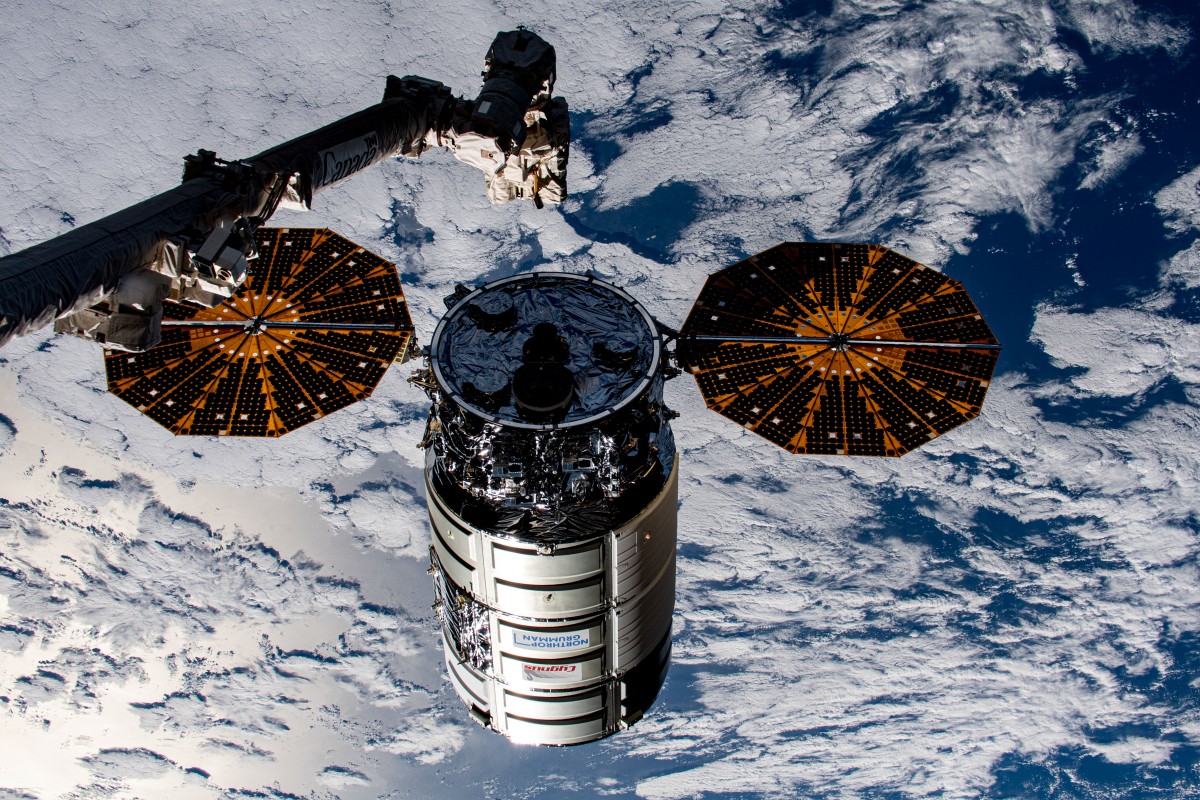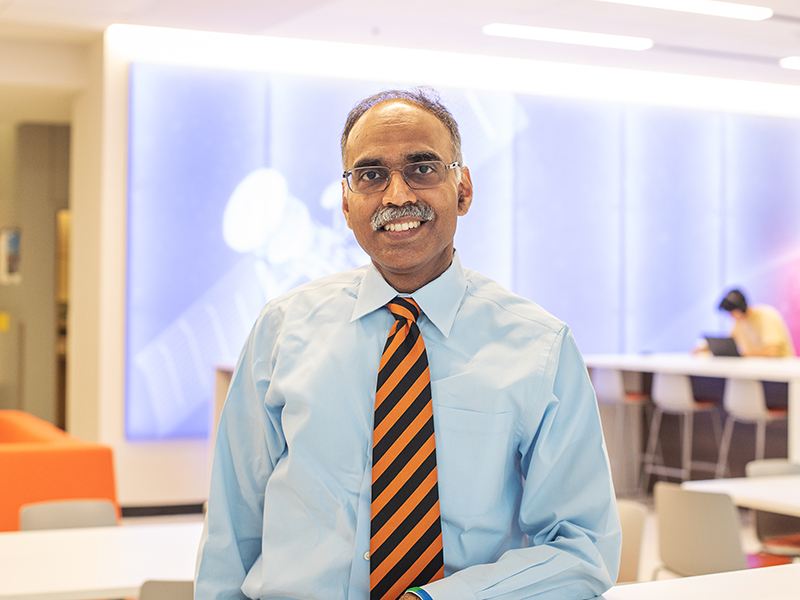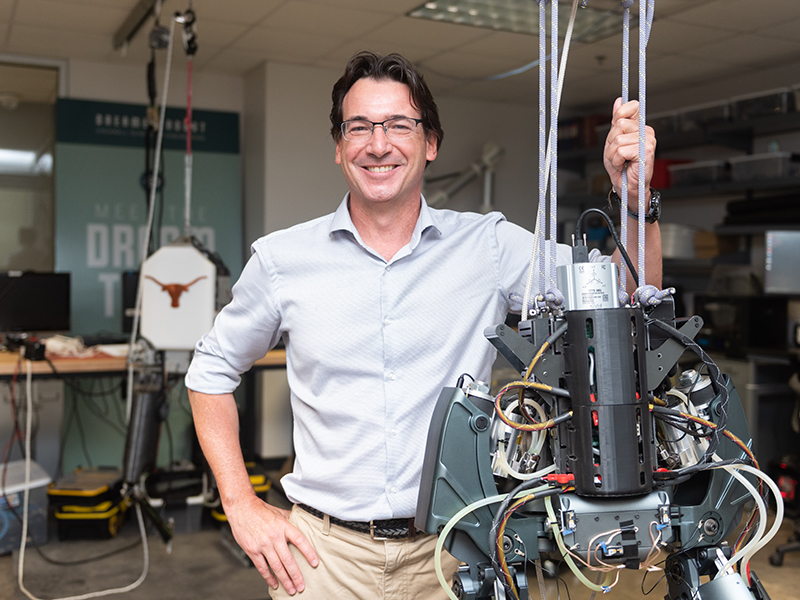
The Cygnus cargo spacecraft is pictured moments away from being captured by the Canadarm2 robotic arm.
Texas Engineers are participating in a groundbreaking U.S. Space Force operation that will propel innovative technologies for in-space operations.
Aerospace and mechanical engineers from The University of Texas at Austin will contribute major advances for space robotics, mobility, motion-planning, and high-performance actuator development for rendezvous, proximity maneuvers, in-space repair, refueling, and assembly operations. The project is part of The Space Strategic Technical Institute for In-Space Operations (SSTI-ISO), a collaborative effort involving several leading academic units and industry partners.
The project has been awarded $37.6 million over five years, with UT’s portion totaling approximately $5.8M. Maruthi Akella, professor in the Department of Aerospace Engineering and Engineering Mechanics, will lead UT’s portion of the project, with Texas A&M University at the helm.


Maruthi Akella (left) and Luis Sentis (right), professors in the Cockrell School’s Department of Aerospace Engineering and Engineering Mechanics
“Robotics and autonomy are central to the goals of this in-space operations effort,” Akella said. “Our team brings in the core expertise for perception, autonomous path-planning, onboard optimization, dexterous mobility, and the design/realization of high-performance robotics hardware.”
Robots in space isn’t a new concept. Robotic arms on the International Space Station and deep-space missions that send rovers to other worlds to map out areas and collect samples are just two examples. However, the majority of these mission operations involve significant pre-planning, tele-operation, and/or human supervision that limits the cost and scale of adoption for these technologies.
“Our research is advancing space robotics with unprecedented levels of agility, dexterity, perception, onboard planning and decision-making, thereby significantly expanding the range and number of missions that can be operated with safety and reliability guarantees,” Akella said. “Our work will enable new (and currently non-existent) capabilities for autonomous serving/repairing and upgrades of orbital assets for life extensions, and to perform on-demand spacecraft payload reconfigurations for meeting emergent operational requirements.”
Other Texas Engineering faculty involved in the project include aerospace engineering professor Luis Sentis and Mitch Pryor, a research professor in the Walker Department of Mechanical Engineering.
“Our team at UT will make significant contributions in the areas of robotic-based inspection in close proximity to satellites, dexterous mobility and robot motion planning, designing robotic actuation for new types of servicing spacecrafts, and advanced simulations of robotic spacecrafts,” Sentis said. “We look forward to making ASE/EM a top department for in-space operations with robotic spacecrafts.”
SSTI-ISO will infuse novel technologies into industrial efforts and government laboratories and provide access to workforce, talent and subject matter experts for defense space missions.
Led by Robert Ambrose, a professor in the mechanical engineering department at Texas A&M, the team also includes researchers and students from the University of Southern California, Purdue University, Carnegie Mellon University, the University of New Mexico, the University of Texas at El Paso, Prairie View A&M University and the Southwest Research Institute, amassing over 400 years of combined experience in the space sector.
“This is the first time the U.S. Space Force has established an institute to focus on advancing in-space operations addressing major technology gaps and needs of priority for both national security and commercial space operations,” Akella said.
Leading space industrial partners include Northrop Grumman, Lockheed Martin, Intuitive Machines, Blue Origin, Lunar Resources, Novium, Aegis and Axiom Space.
